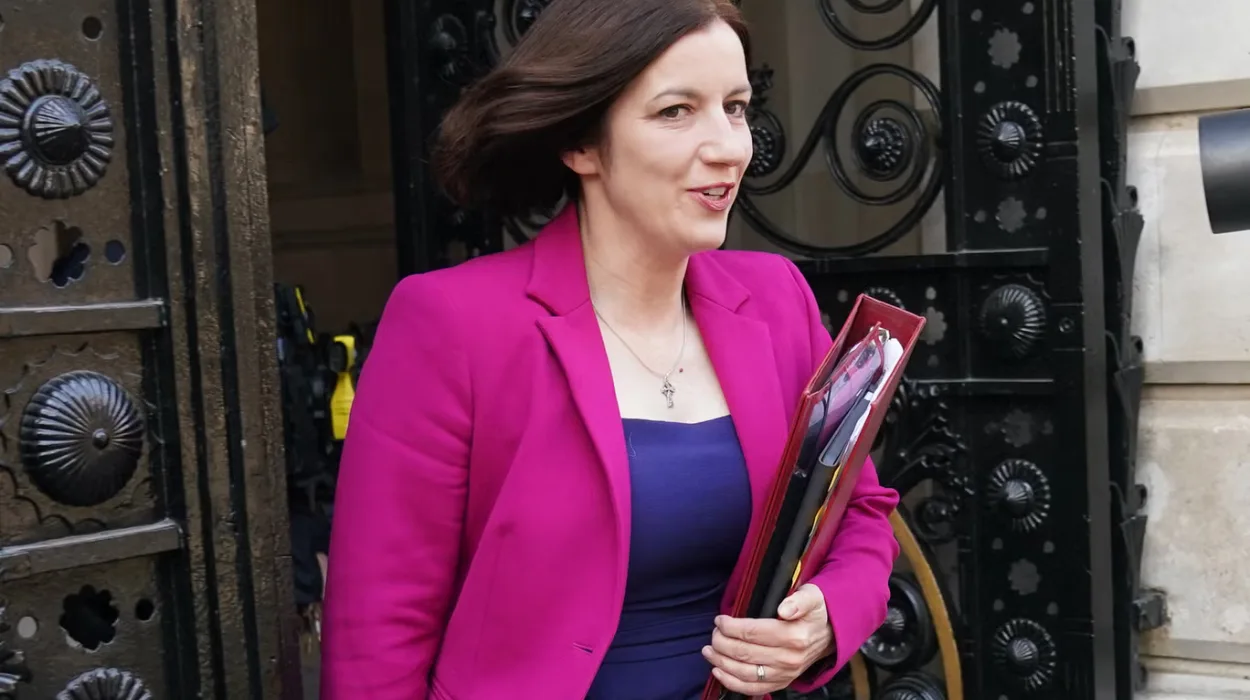UK (Parliament Politics Magazine) – Equalities Minister Bridget Phillipson says trans women should use male toilets, urging businesses to provide unisex options after the Supreme Court ruling.
As reported by The Independent, the Equalities Minister has stated that trans women must use male toilets, asserting that “services should be accessed on the basis of biological sex.”
What did Bridget Phillipson say about unisex facilities?
Following the Supreme Court judgment, Education Secretary and Equalities Minister Bridget Phillipson urged businesses to provide appropriate provisions, including unisex facilities.
She stated that the Supreme Court ruling is clear on the need for services to be accessed according to biological sex.
Ms Phillipson’s remarks came after a long-awaited ruling, where the UK’s highest court stated the terms “woman” and “sex” in the 2010 Equality Act “refer to a biological woman and biological sex.”
She said, “I know that many businesses, large and small, will ensure that they have appropriate provision in place. For example, many businesses have moved towards unisex provision or separate cubicles that can be used by anyone.”
The Equalities Minister stated, “There are important questions around, for example, the use of toilets, around the use of changing facilities, but there are also profound questions that I think are even more important about, for example, hospital provision, rape crisis centres, women’s refuges, where you are talking about people often being in that provision on an accommodation basis for an extended period of time.”
She said, “And I think it is important and welcome that the Supreme Court have put beyond doubt that providers can make sure that is done based on biological sex.”
Ms Phillipson will deliver a statement to the Commons on Tuesday, as Parliament resumes after the Easter recess.
She stated that the Supreme Court ruling enables service providers to “operate with absolute confidence in delivering single-sex spaces for biological women.”
The Equalities Minister added, “I do welcome the clarity that the Supreme Court judgment has brought in this area, making clear that biological sex is the basis on which single-sex spaces are provided.”
She pointed out that schools would receive further guidance on handling gender-questioning children, adding, “The heart of everything we do has to be about making sure that children’s wellbeing is supported, but also that school leaders, in particular, have the clarity and guidance that they want.”
Ms Phillipson said, “We recognise and believe in the importance of single-sex spaces. Before I was a Member of Parliament I used to run a women’s refuge, so I know more than most how essential it is that women, particularly those who’ve experienced sexual violence and male abuse, are able to have safe, therapeutic environments, and that’s why there has always been protection there within the law for single-sex spaces,” adding, “There has been some confusion. I’m glad that’s been cleared up, because providers can now operate with absolute confidence in delivering single-sex spaces for biological women.”
What did Lord Sumption say about the ruling on trans women?
Jonathan Sumption, a former Supreme Court judge, has raised concerns that organisations are misinterpreting the judgment. He clarified that the ruling did not create an obligation to provide single-sex spaces.
According to Lord Sumption, the judgment permits the exclusion of transgender individuals from single-sex spaces, but does not mandate it.
He added, “That’s the main point, which I think has been misunderstood about this judgment. I think it’s quite important to note that you are allowed to exclude trans women from these facilities. But you are not obliged to do it.”
What did Stephen Morgan say about the protest placard controversy?
Education Minister Stephen Morgan responded to a protest placard seen in Parliament Square that showed gallows and read, “the only good Terf is a hanged one”. He described it as “completely and utterly unacceptable”.
He added, “It’s completely unacceptable language to be used, and obviously any matters that break the law should be reported to the police, and hopefully police action is taken.”
What did Karin Smyth say about transgender access to changing rooms?
After the Supreme Court ruled that transgender women are not legally women under the Equality Act, a government minister was unable to provide a clear stance on which changing room they should use.
Karin Smyth health minister said, “Look, I think we need to make sure that in this discussion we are following both the law so that is clear for women and for service providers and you know… this varies upon what the provision of those service providers are. Large organisations, smaller organisations, many smaller organisations.”
Ms Smyth stated that the variation exists because, “Some will have unisex provisions. There might only be one bathroom, one changing room in an organisation. It’s a large, complex issue, so that’s why people have to be very clear on that guidance.”
What did the Supreme Court say about trans women under the equality act?
Last week, the Supreme Court ruled that trans women are not legally considered women under the Equality Act. Five Supreme Court judges ruled that the Equality Act’s definition of “woman” and “sex” applies to biological women and biological sex.
In a detailed 88-page ruling, Lord Hodge, along with Lords Reed and Lloyd-Jones and Ladies Rose and Simler, clarified that although the term “biological” is not mentioned in the Equality Act’s definition of “man” or “woman,” the ordinary meaning of those words reflects the biological traits that distinguish men from women.

